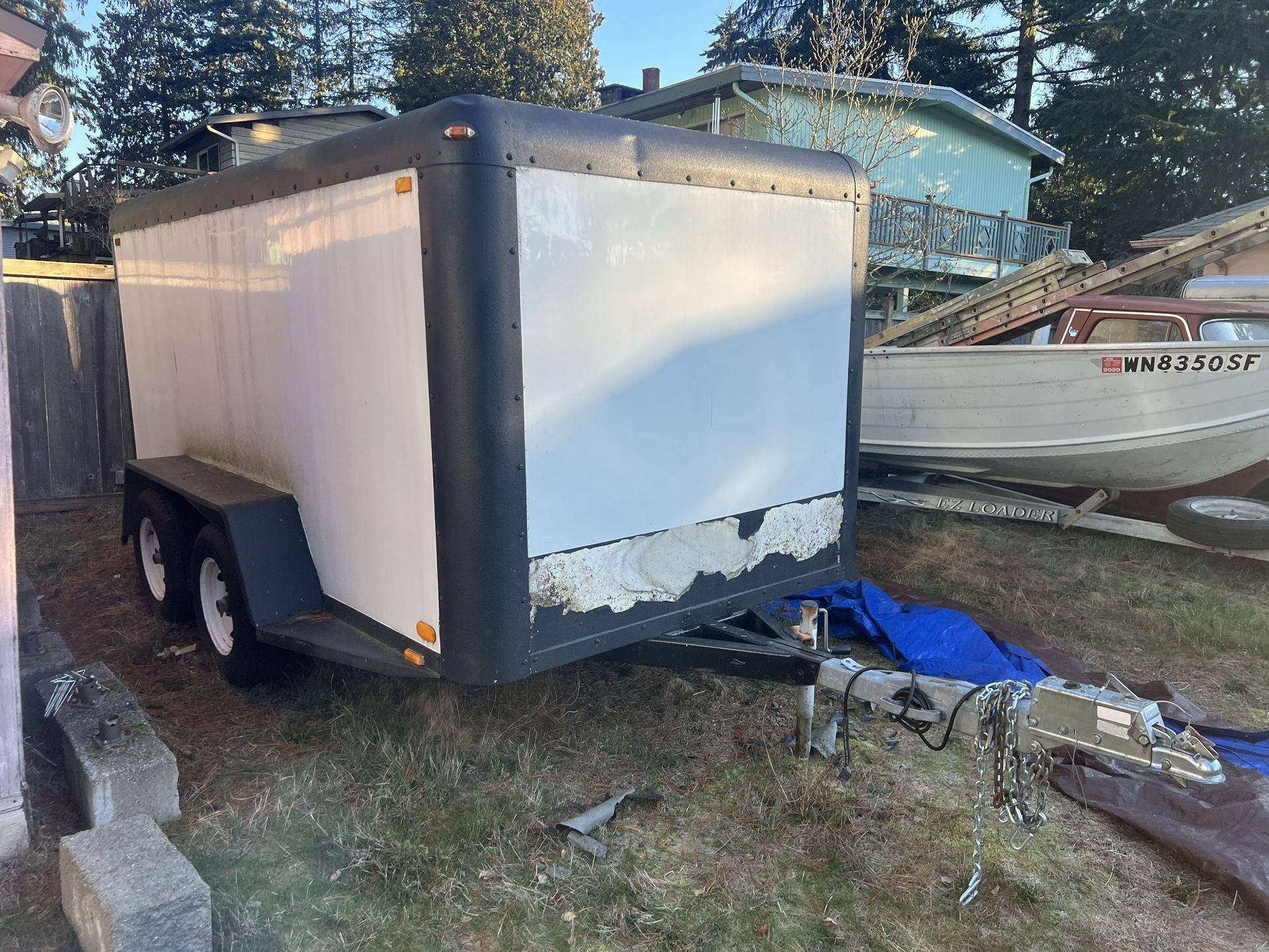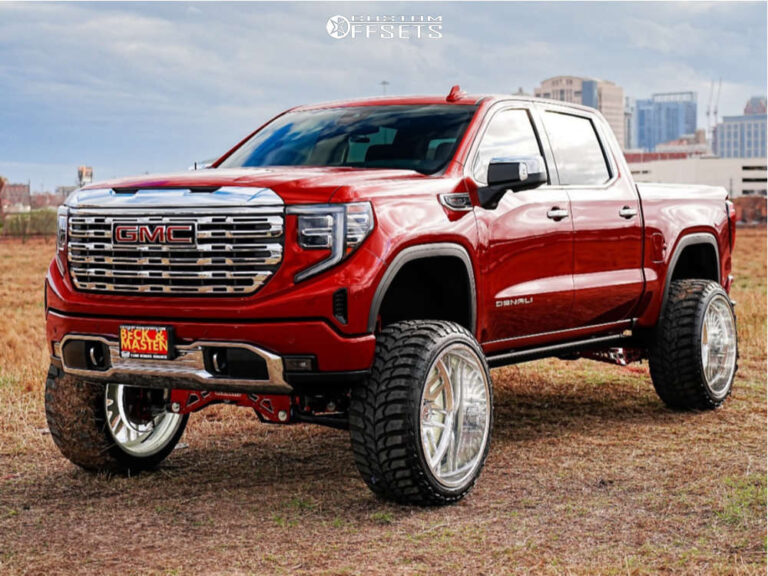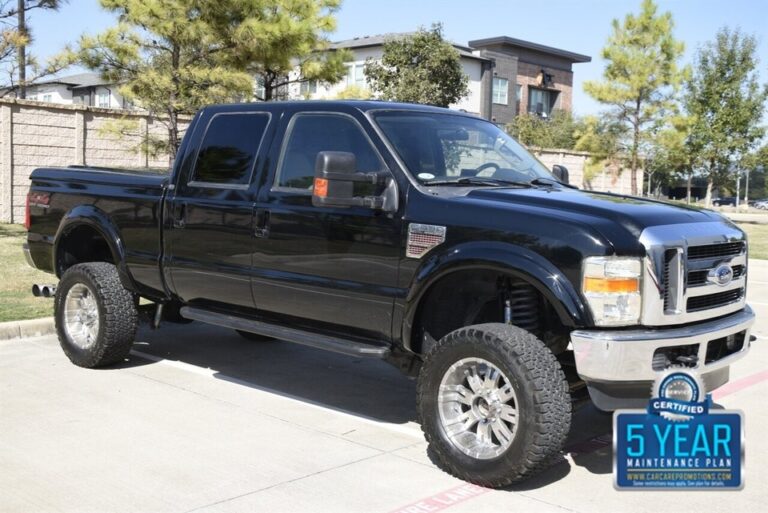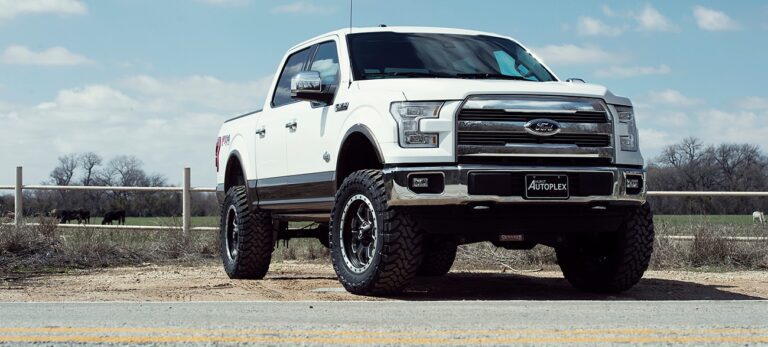U-Haul Trailers for Sale: Your Comprehensive Guide to Owning a Reliable Hauling Solution

U-Haul Trailers for Sale: Your Comprehensive Guide to Owning a Reliable Hauling Solution
For millions, the familiar orange and white emblem of U-Haul signifies moving and hauling solutions. While most associate U-Haul with rentals, a lesser-known but equally valuable option exists for individuals and businesses alike: purchasing retired U-Haul trailers. "U-Haul trailers for sale" represents a significant opportunity to acquire durable, well-maintained, and incredibly versatile hauling equipment at a fraction of the cost of new alternatives. These aren’t just any used trailers; they are robust units designed for continuous, heavy-duty use, making them an excellent investment for anyone with recurring transport needs, from DIY home projects and landscaping to small business logistics and vehicle transport. This comprehensive guide will explore every facet of buying a U-Haul trailer, offering insights, practical advice, and everything you need to know to make an informed decision.
Why Buy a Used U-Haul Trailer? The Undeniable Advantages
The decision to purchase a used U-Haul trailer often boils down to a compelling set of advantages that make them stand out in the pre-owned trailer market.
- Cost-Effectiveness: This is arguably the primary driver. Buying a used U-Haul trailer is significantly cheaper than purchasing a brand-new equivalent. For those with frequent hauling needs, owning quickly becomes more economical than continuous rentals, with the break-even point often reached surprisingly fast.
- Built for Durability: U-Haul’s business model relies on its equipment withstanding constant use by a diverse range of renters. Consequently, their trailers are engineered with heavy-gauge steel, robust axles, and quality components designed for longevity and resilience. They are built tough, not just to look good.
- Standardized Maintenance: As part of a massive fleet, U-Haul trailers undergo rigorous, scheduled maintenance and inspections. While buying used always requires your own inspection, the baseline level of care these trailers receive is generally higher than what you might find from a private seller’s sporadically used equipment.
- Versatility for Diverse Needs: Whether you’re moving household goods, hauling construction materials, transporting an ATV, or even moving a vehicle, there’s a U-Haul trailer type suited for the job. Their standardized designs are universally practical.
- Strong Resale Value: Due to their reputation for durability and utility, U-Haul trailers tend to hold their value well. Should your needs change, you’re likely to recoup a good portion of your initial investment.
- Ready-to-Go: Most U-Haul trailers come equipped with standard lighting, safety chains, and surge brakes (on larger models), meaning they are generally road-ready with minimal additional investment beyond ensuring basic functionality.
Understanding the Types of U-Haul Trailers for Sale
U-Haul offers a variety of trailer types, each designed for specific hauling tasks. When considering U-Haul trailers for sale, it’s crucial to understand the differences to match the right trailer to your specific requirements.
1. Cargo Trailers (Enclosed Trailers)
These are the iconic orange and white boxes designed to protect your belongings from weather, road debris, and theft. They are ideal for moving household items, furniture, sensitive equipment, and anything that needs to stay dry and secure.
- Common Sizes: 4’x8′, 5’x8′, 5’x10′, 6’x12′.
- Key Features: Enclosed structure, lockable rear door (often a ramp door or swing doors), side marker lights, safety chains, often equipped with surge brakes on larger models.
- Ideal For: Residential moves, transporting electronics, tools, valuables, long-distance hauling.
2. Utility Trailers (Open Trailers)
Utility trailers are open-air trailers with low side rails, perfect for hauling bulky, irregularly shaped, or messy items. They often feature a low deck height and a ramp for easy loading.
- Common Sizes: 5’x9′, 6’x12′.
- Key Features: Open deck, low sides, often include a sturdy ramp, tie-down points, single or tandem axle (depending on size).
- Ideal For: Landscaping debris, construction materials, lumber, ATVs, motorcycles, furniture that doesn’t require weather protection.
3. Auto Transport Trailers (Car Carriers)
These heavy-duty trailers are specifically designed for transporting vehicles. They feature a full deck, ramps, and tie-down points to secure a car, truck, or SUV.
- Common Sizes: One standard size designed to accommodate most passenger vehicles.
- Key Features: Tandem axle for stability and weight distribution, heavy-duty ramps, secure tie-down straps, surge brakes.
- Ideal For: Moving non-running vehicles, classic cars, project cars, long-distance vehicle relocation.
4. Motorcycle Trailers
Smaller and more specialized, these trailers are built to safely transport one or more motorcycles.
- Common Sizes: Designed for single or multiple bikes.
- Key Features: Low deck height, specific motorcycle chocks or channels, multiple tie-down points.
- Ideal For: Transporting motorcycles for events, repairs, or long-distance moves.
The U-Haul Trailer Sales Process: How to Find and Purchase
Acquiring a used U-Haul trailer is a straightforward process, but knowing where to look and what steps to take is crucial.
- Official U-Haul Sales Program: The most reliable way to find U-Haul trailers for sale is directly through U-Haul’s official "Used Trailers for Sale" program. Visit their dedicated website (usually found by searching "U-Haul used trailers for sale"). This platform lists available trailers by location, allowing you to browse inventory at nearby U-Haul centers. Buying directly from U-Haul offers peace of mind regarding origin and often provides a clearer picture of the trailer’s history.
- Third-Party Marketplaces: Websites like Craigslist, Facebook Marketplace, eBay, and local classifieds are also common places where individuals resell their purchased U-Haul trailers. While these can offer competitive prices, they require more diligent inspection and verification of ownership.
- Local U-Haul Dealers: Sometimes, individual U-Haul locations may have a few trailers for sale that haven’t been listed online yet. It doesn’t hurt to call or visit your local U-Haul center and inquire.
Inspecting a Used U-Haul Trailer
Regardless of where you find your trailer, a thorough inspection is paramount.
- Frame and Structure: Look for cracks, excessive rust, or signs of collision repair. The frame should be straight.
- Floor and Walls (Cargo Trailers): Check for soft spots, water damage, or significant holes.
- Axles and Suspension: Ensure axles are straight, and springs/shocks (if applicable) are not broken or excessively rusty.
- Tires: Inspect for tread wear, sidewall cracks, and overall condition. Don’t forget the spare!
- Lights and Wiring: Test all lights (tail, brake, turn signals, markers). Check wiring for frayed insulation or exposed wires.
- Hitch Coupler: Ensure it latches securely and is free of damage.
- Safety Chains: Must be intact and strong.
- Ramps/Doors: Test their functionality and ensure they latch securely.
- Brakes (if applicable): If it has surge brakes, check the master cylinder for fluid levels and inspect the brake lines.
- Title and VIN: Verify the Vehicle Identification Number (VIN) on the trailer matches the title provided by the seller. Ensure the title is clear and transferable.
Key Considerations Before You Buy
Purchasing a U-Haul trailer is a significant investment that comes with ongoing responsibilities. Consider these factors carefully.
- Towing Vehicle Compatibility: Your tow vehicle must have the appropriate towing capacity for the trailer’s Gross Vehicle Weight Rating (GVWR) when fully loaded. Also, ensure you have the correct hitch type (ball size), wiring harness (4-pin or 7-pin), and potentially a brake controller for trailers with electric brakes.
- Storage: Where will you keep your trailer when not in use? Do you have space in your driveway, or will you need to rent storage? Be aware of local HOA rules or city ordinances regarding trailer parking.
- Maintenance Costs: While U-Haul trailers are durable, they still require maintenance. Budget for tire replacement, bearing repacking, light bulb changes, and occasional brake service.
- Registration and Insurance: Trailers typically need to be registered with your state’s Department of Motor Vehicles (DMV) and often require a license plate. Check your auto insurance policy; many policies extend liability coverage to towed trailers, but you might need additional coverage for physical damage to the trailer itself.
- Intended Use vs. Trailer Type: Revisit your primary hauling needs. Don’t buy a cargo trailer if you mostly haul landscaping debris, and vice versa. Matching the trailer to your most frequent use will ensure maximum utility.
Practical Tips for U-Haul Trailer Owners
Once you own a U-Haul trailer, proper care and handling will ensure it serves you reliably for years to come.
- Regular Maintenance: Follow a routine schedule for checking tire pressure, lug nut torque, wheel bearings, and lights. Inspect the frame and coupler for wear or damage periodically.
- Proper Loading: Always distribute weight evenly over the axle(s), with slightly more weight (10-15% of the total trailer weight) on the tongue to prevent swaying. Secure all cargo to prevent shifting during transit.
- Safe Towing Practices: Drive defensively, allow extra stopping distance, and make wider turns. Always check your mirrors and be aware of the trailer’s presence. Practice backing up in an empty lot.
- Security: Invest in a good hitch lock and, if applicable, a wheel chock lock to deter theft.
- Cleaning: Keep your trailer clean, especially after hauling corrosive materials. This helps prevent rust and prolongs its appearance and life.
U-Haul Trailers for Sale: Price Table
Prices for used U-Haul trailers can vary significantly based on condition, age, mileage, and geographical location. The table below provides estimated price ranges for trailers in fair to good condition. These are approximate values and should be used as a guide, not a definitive quote.
| Trailer Type | Size (Approx.) | Used Price Range (USD) | Key Features / Notes |
|---|---|---|---|
| Cargo Trailer | 4’x8′ | $800 – $1,500 | Smallest enclosed, lightweight, single axle. |
| Cargo Trailer | 5’x8′ | $1,000 – $2,000 | Popular size, good for general hauling, single axle. |
| Cargo Trailer | 5’x10′ | $1,200 – $2,500 | More capacity, single axle, often with surge brakes. |
| Cargo Trailer | 6’x12′ | $1,500 – $3,000 | Largest enclosed, tandem axle, standard surge brakes. |
| Utility Trailer | 5’x9′ | $700 – $1,400 | Open, often with ramp, single axle. |
| Utility Trailer | 6’x12′ | $900 – $1,800 | Larger open, heavy-duty, tandem axle. |
| Auto Transport | One-size | $2,000 – $4,000 | Tandem axle, full deck, surge brakes. |
| Motorcycle Trailer | One-size | $800 – $1,500 | Specialized for bikes, often single axle. |
Note: Prices are estimates for trailers in functional, used condition. Expect variations based on market demand and specific trailer features.
Frequently Asked Questions (FAQ) About U-Haul Trailers for Sale
Q1: Do U-Haul trailers come with a title?
A: Yes, generally. When you purchase a U-Haul trailer directly from U-Haul or a reputable private seller, it should come with a clear title (Certificate of Title) that you will need to transfer into your name for registration.
Q2: Can I buy directly from U-Haul?
A: Absolutely. U-Haul has an official program for selling retired fleet trailers. You can typically find available inventory on their dedicated "Used Trailers for Sale" section of their website. This is often the most reliable way to purchase.
Q3: Are U-Haul trailers single or double axle?
A: It depends on the size and type. Smaller cargo trailers (e.g., 4×8, 5×8, 5×10) and utility trailers (e.g., 5×9) are typically single axle. Larger cargo trailers (e.g., 6×12), utility trailers (e.g., 6×12), and all auto transport trailers are designed with tandem (double) axles for increased capacity and stability.
Q4: What’s the typical lifespan of a U-Haul trailer?
A: U-Haul trailers are built to be robust and durable for continuous commercial use. With proper maintenance, a used U-Haul trailer can easily provide another 10-20 years of reliable service for a private owner. Their strong construction means they often outlast many other consumer-grade trailers.
Q5: Can I modify a U-Haul trailer after purchase?
A: Yes, you can modify a U-Haul trailer once you own it. Common modifications include adding shelving, interior lighting, custom paint jobs, or changing out the rear door. However, always consider the structural integrity and safety implications of any modifications, and ensure they comply with local vehicle regulations.
Q6: Are U-Haul trailers good for long-distance travel?
A: Yes, they are designed for it. Their robust construction and standardized safety features make them well-suited for long-distance hauling, provided they are properly maintained, loaded correctly, and towed by a compatible vehicle.
Concluding Summary
Purchasing a used U-Haul trailer offers an outstanding value proposition for anyone in need of reliable, durable, and versatile hauling equipment. From their inherent strength and robust engineering to their cost-effectiveness and readily available types for various tasks, U-Haul trailers for sale present a smart investment. By understanding the different models, knowing where to find them, performing a diligent inspection, and considering the practical aspects of ownership, you can confidently acquire a workhorse that will serve your moving, project, or business needs for many years to come. With a little care and attention, owning a U-Haul trailer can truly be a hassle-free and highly beneficial experience.





